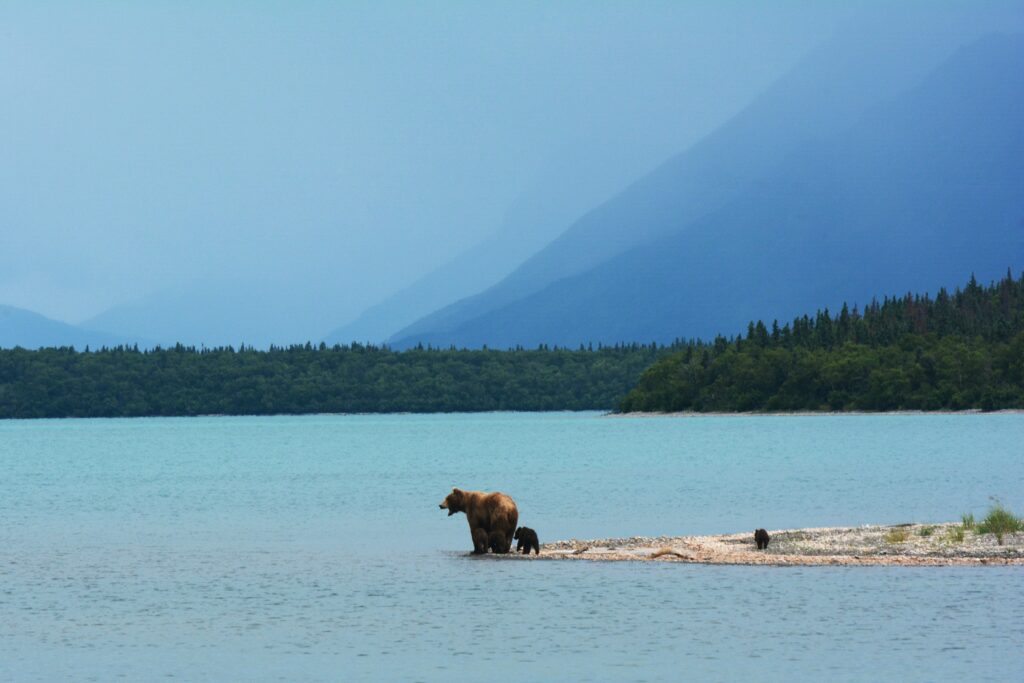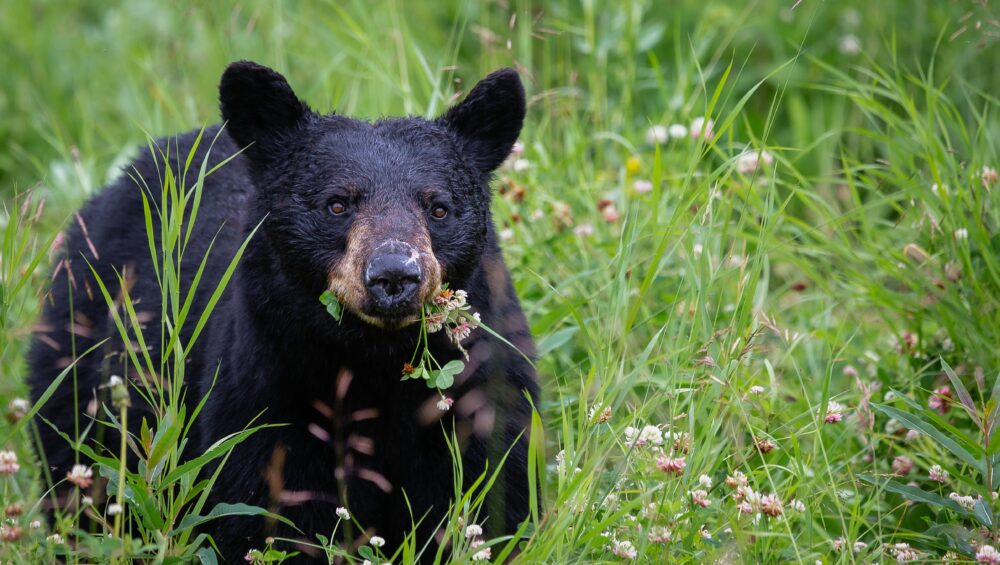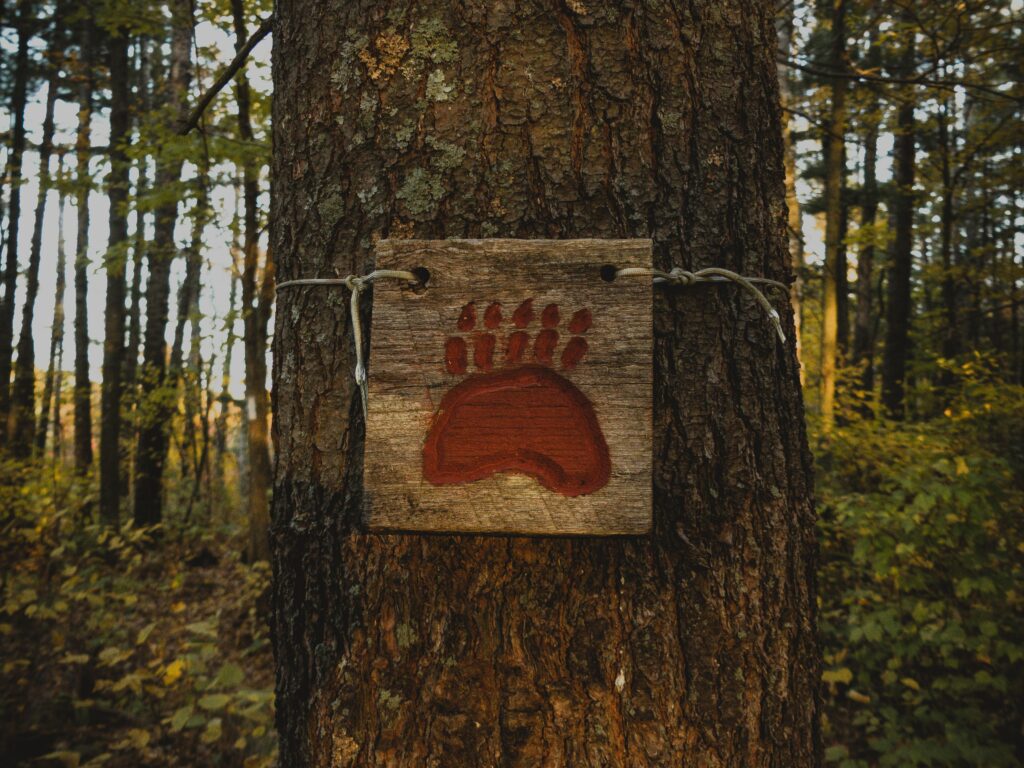Colorado is home to many interesting and exciting species of wildlife, and that includes black bears. If you are planning to camp in bear country, there are some things you should know in order to be well prepared. We’ve compiled a list of the most important tips for bear proofing a campsite as well as how to stay safe while hiking in bear country.
Why Bear Proofing is Important
There are an estimated 16,000 black bears in the state of Colorado. Though they are not endangered, it is still important to protect them. When bears get into campsites and learn they can find food around humans, it becomes a risk for everyone. Even though black bears do not typically attack humans, they will still be put down if they start frequenting campsites. It is essential to bear proof your campsite to avoid bear encounters and keep these animals safe.
How to Bear Proof a Campsite
What Needs to Be Bear Proofed
The main objective of bear proofing is to prevent bears from smelling anything near your campsite. Keep in mind that this includes more than just food! Scented hygienical products like toothpaste, mouthwash, sunscreen, bug repellent, hand cream, and deodorant should be included in this group. Don’t forget about anything that might have the scent of food on it, including trash and cooking supplies: food remnants, wrappers, pots and pans, utensils, gum, etc should be included. As you think about everything in your backpack, consider anything scented that you have with you. It all needs to go in a bear bag or food locker.
Methods for Bear Proofing Your Campsite
Now that we’ve discussed what to bear proof, let’s cover how. There are a few methods for keeping bears out of campsites. The easiest would be if your campsite has a bear locker. These metal food storage lockers are impossible for bears to get into, and you’ll often find similar mechanisms for campsite trash receptacles. If these are not available, you will need to hang a bear bag from a tree to keep it out of a bear’s reach.
How to Hang a Bear Bag
Bear bags are a great way to keep odorous and enticing items away from bears. You can get waterproof and odor-proof bags or, at minimum, double bag all your goods. Seal everything in a bag with a string or rope so you can hang it from a tree. Once you choose a tree with a sturdy enough branch, throw the rope over using a stick or something weighted. Then, raise the bear bag and tie the rope off around the tree trunk. Bear bags should be hung at least 12-15 feet in the air and 6-10 feet from the trunk.
100-Yard Campsite Triangle
One of the best ways to protect yourself from a curious bear is with a campsite triangle. First, make sure you see no evidence of bears, from footprints to clawed trees to scat. Next, you will want to designate a campsite that is at least 100 yards from your cooking site and 100 yards from where you hang your bear bag. Cooking smells tend to linger, especially in clothes. This is why it is recommended to cook away from your tent and change clothes after. Also, remember to camp upwind of your cooking site for the same reason.
Do Not Store Food in Your Car
You should never store scented items in your tent. Some campers might think it is better to sleep with their important belongings, but this is very dangerous as bears can easily enter tents. Similarly, do not store food items in a vehicle. Bears have proven that they know how to break windows, open car doors, etc. If they are able to smell something tucked away in your trunk, you are sure to find your car damaged the next morning.

How to Stay Safe Hiking in Bear Country
Some of the best hiking safety tips, like hiking in a group and not after dark, are helpful for hiking in bear country. Hiking in a group is more likely to alert a bear to your presence before you get too close. If you are hiking alone, playing music or singing are good options for alerting wildlife to your presence and giving them time to move away. When camping in bear country, be sure to use a headlamp at night and check your surroundings before leaving the tent.
What to Do if You Encounter a Black Bear
If you spot a black bear while hiking in Colorado, stay calm. Black bears are not likely to attack unless they feel threatened. There are a few things you can do to keep a bear encounter from escalating into an attack.
Don’t Run or Yell
First, you want to avoid doing anything that would remind a bear of its prey. Do not scream; rather, talk to the bear in a calm voice with low tones. Avoid running away or trying to climb a tree as these will provoke the bear to chase you. Black bears can climb trees, and they can also run faster than humans, so these are not good strategies for de-escalating a bear encounter. If you are hiking with kids, you should pick them up, as a bear might interpret small children as prey.
Evaluate the Scene
One important thing to recognize during a bear encounter is the presence of cubs. If you see a mother bear with cubs, you need to be extra cautious. A mother bear will not hesitate to attack if she perceives her cubs are threatened. The best thing to do is to note the positions of all the bears and avoid stepping between the mother and her cubs.
Back Up Slowly
If the bear is to the side of your trail, you may be able to continue your hike by walking slowly. Never walk in the direction of the bear; walk sideways or backward so it does not feel threatened. If your only option is to backtrack, then do so and wait for the bear to leave. Always make sure the bear has ample space and an exit route away from your position.
Escape to Safety
If a black bear enters your campsite, get into your car and lock the doors. Hiding in a tent is not suggested, as bears can get into tents if motivated to do so. The final resort for protection against attacks is bear spray. Check local regulations of your hiking or camping sight to see if it is permitted. If so, carry the bear spray on the outside of your backpack so it is always easily accessible.
Final Thoughts
Now that you know these tips for hiking and camping in bear country, you will be both safer and more able to protect the local bear population. Bear proofing a campsite might seem like a lot of work, but it is often required by park regulations, and it is important for everyone’s safety. Kids can enjoy the challenge of hanging the bear bag, and everyone can rest easy knowing they aren’t attracting wildlife to the tent.


